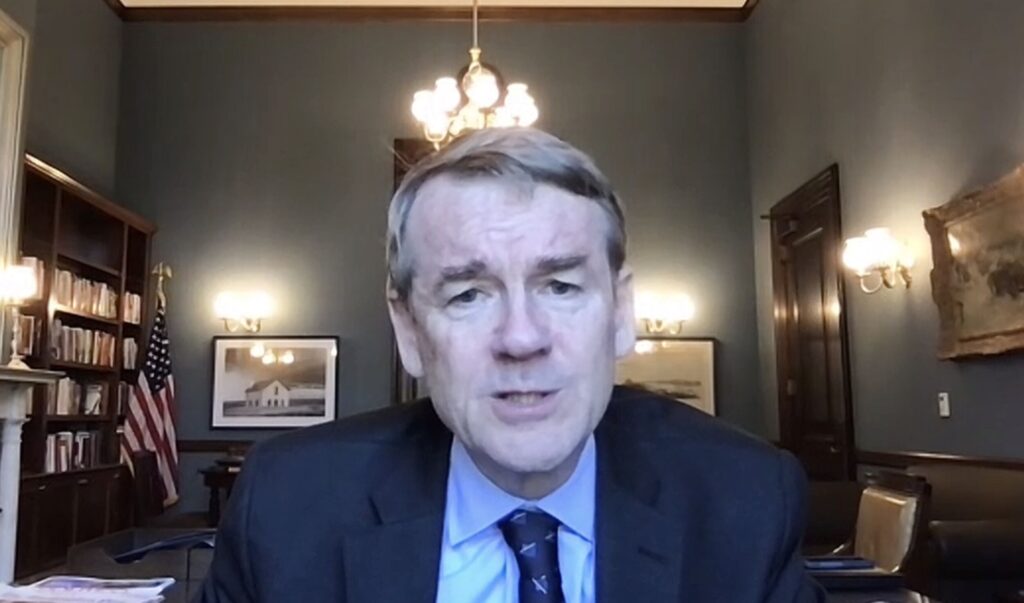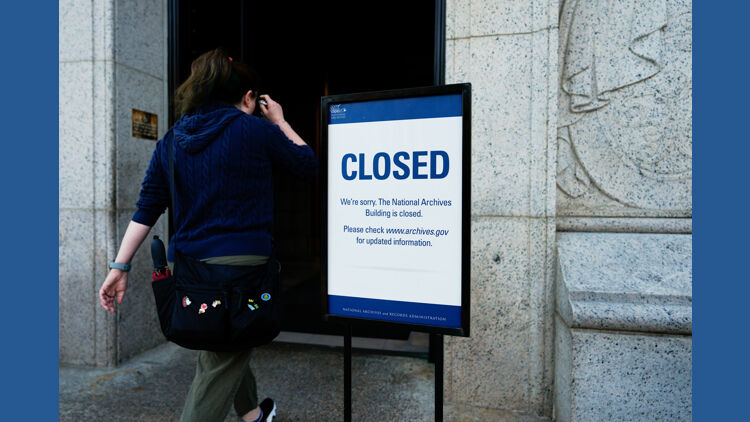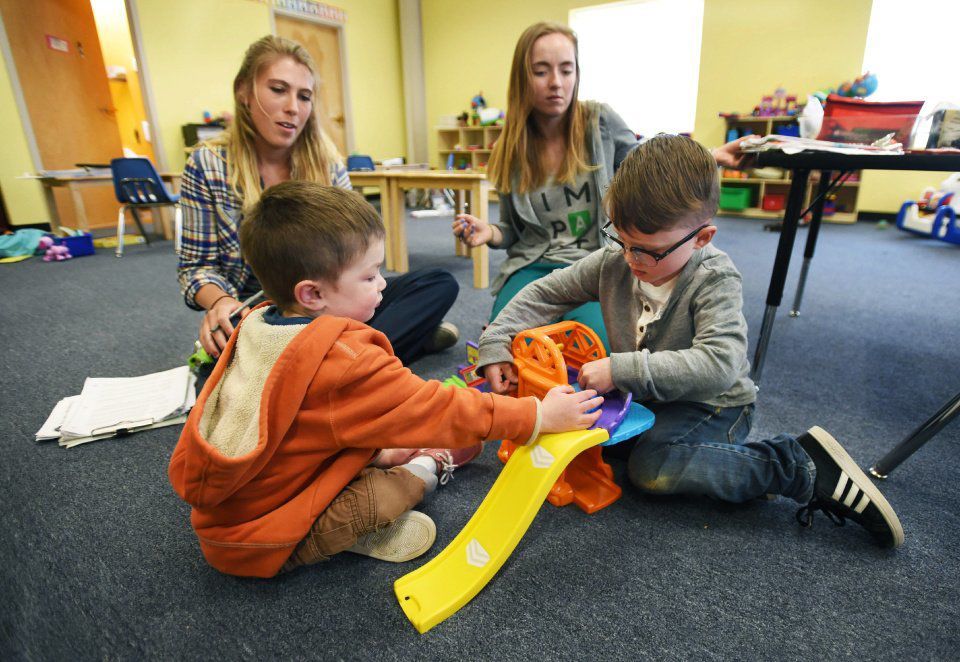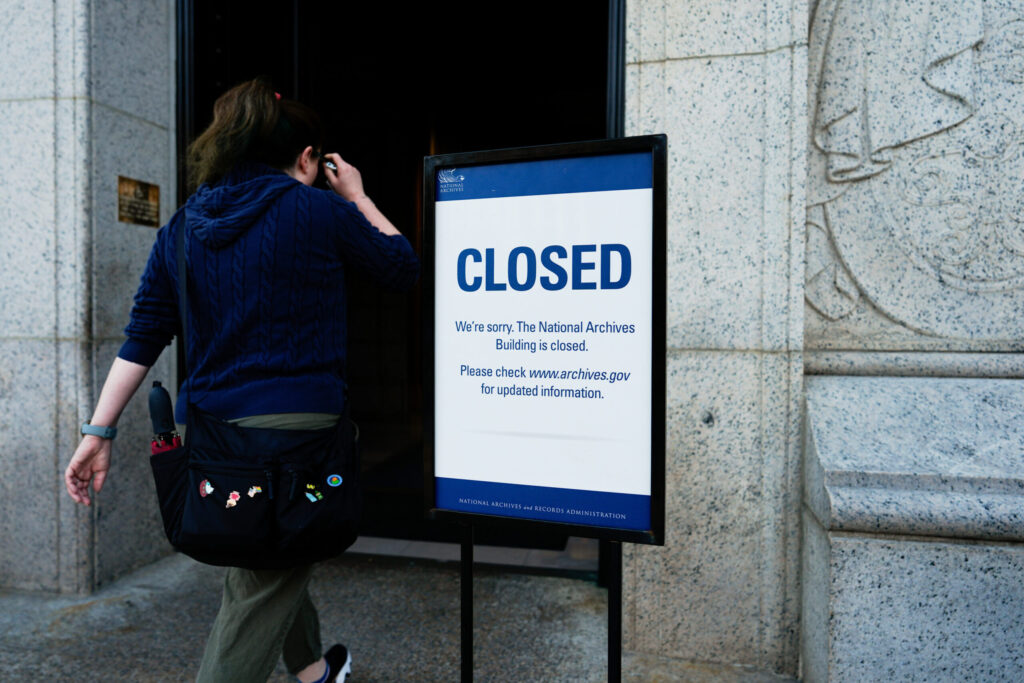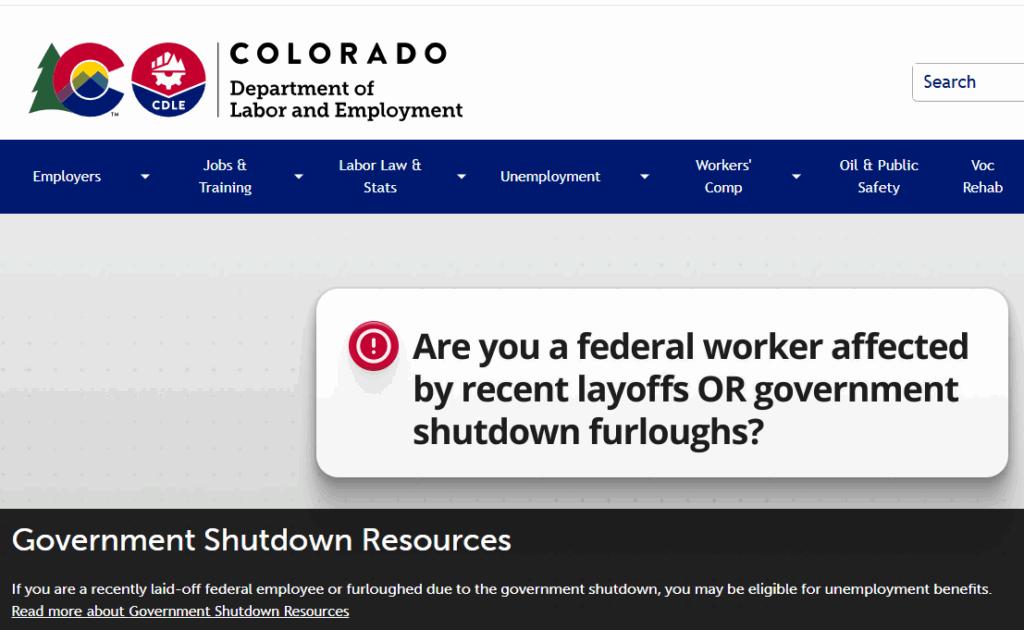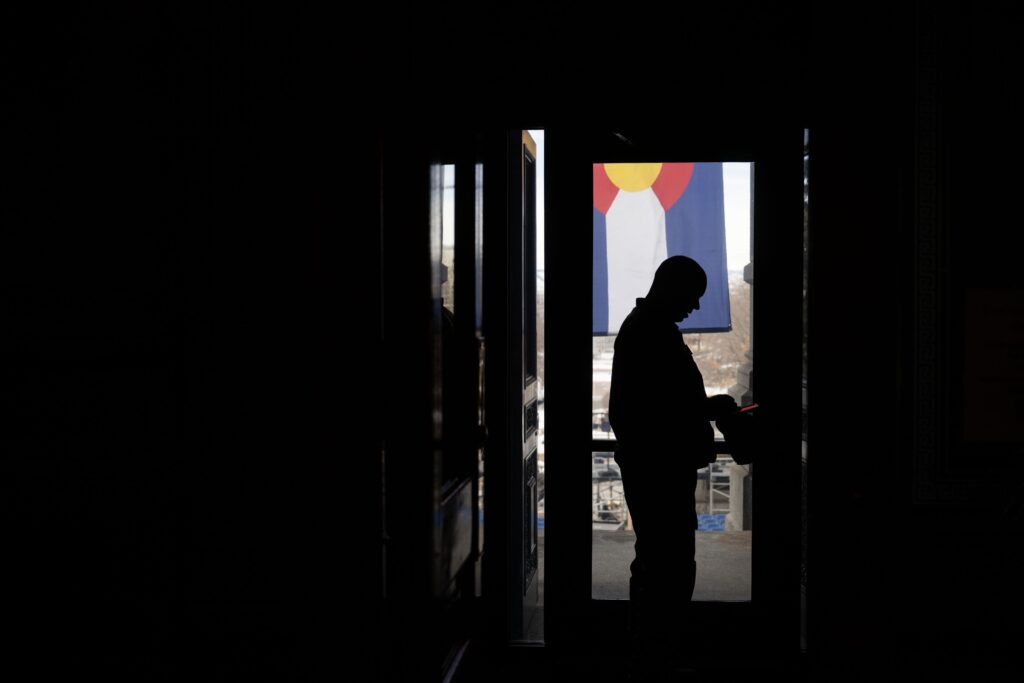Steve Fenberg talks about engaging young voters, his mountain bar and being mistaken for an aide
State Sen. Steve Fenberg discusses a range of topics in an episode of “Behind the Politics,” a weekly podcast produced by the Senate Democrats posted online this week, including his work engaging young voters over the course of a decade with New Era Colorado, the Silver Plume bar he opened last summer with a few friends and some amusing incidents when his youthful appearance – he’s 33 but could easily pass for several years younger – has flummoxed Capitol staff .
Fenberg engages in an easy 15-minute conversation with Senate Minority staffers David Pourshoushtari and Jill Mullen on this week’s edition of the podcast, which posted to iTunes and YouTube on Monday. It’s the latest salvo in a battle for viewers and listeners waged by caucuses at the Capitol this year, including a weekly video produced by the House Republicans and regular video releases from the Senate Republicans.
Fenberg, a Boulder Democrat, was elected in November to his Senate District 18 seat, representing Boulder, Lyons, Jamestown, Gold Hill and Nederland – “I have Boulder and the places that are even more like Boulder than Boulder is,” he told The Colorado Statesman recently – and is an owner of Bread Bar, a mountain tavern that doubles as a craft-cocktail destination in a century-old historic building that used to be the bakery in Silver Plume, in Clear Creek County west of Georgetown and just east of the Eisenhower Tunnel.
He describes some of his favorite drinks, crafted with the help of Denver’s The Way Back restaurant and bar and named after historic figures from the mining town’s storied past – the Clifford Griffin is the bar’s stepped-up take on a whiskey sour and the Chief Colorow is a version of a perfect Manhattan, although Fenberg reveals that he likes a good Old Fashioned.
While he’s told the story of the bar’s origins at length before, Fenberg gives the quick version in the podcast: “It felt like the right weird, strange, horrible idea to pull the trigger on, then it turned out to be super fun and has been a great experience and really successful so far,” he says. It’s a place the locals “feel is their living room” but also a place where people from the metro area can come and get away “in kind of a time warp.”
Then he talks about the theory behind and his experience running New Era Colorado, a nonpartisan organization he founded with state Rep. Leslie Herod and Department of Regulatory Agencies Director Joe Neguse after the three University of Colorado Boulder student government buddies got out of college a decade ago.
“When we graduated from college we sort of realized that, in the real world, young people don’t have as much of a voice in the political process as they do sometimes on a campus or in student government,” Fenberg says. “That was why we started the organization, is because we wanted young people to have a seat at the table in shaping the future of our state, whether it’s at elections, the ballot box, or through lobbying and working through public policy.”
“Young people are a huge force to be reckoned with. Millennials are about a third of the electorate in Colorado, and when we show up that changes the outcome of policy decisions and elections,” he adds. Fenberg was the organization’s executive director until about two years ago, and New Era registered more than 150,000 Colorado voters over the decade he was at the helm.
“They’re still doing awesome work, engaging young people in high schools, on college campuses, in communities all over the state,” Fenberg says. “They’re just going to continue on that trajectory and help young people shape the future of the state.”
It’s important to understand, he adds, that today’s youth aren’t the same as they were in recent decades.
“A lot of times there’s this (misconception) that young people don’t care, or they’re apathetic, or they’re not showing up,” he says. “But young people today are a lot different than the young people of yesterday – meaning, not all young people are the same. The young people that are in Gen X are very different than the people that are millennials. Young people who are millennials are showing up in large numbers compared to people who were considered young people before them.”
Politicians write off young voters at their peril, he says. “They are, in a lot of ways, the catalyst for huge movements and change that we’ve seen in recent history, and I think they deserve a lot of credit for being those political advocates to move us forward on a lot of different issues.”
Being one of the freshest-faced lawmakers in the building, Fenberg says with a laugh, can lead to some amusing encounters.
“My very first day of session was pretty funny, because I remember walking into the Capitol, and there was one of the sergeants outside that was directing the freshmen where to go, because the freshmen didn’t really know the situation yet, right?” Fenberg recalls. “I couldn’t open the door because the door was locked, where I was trying to go in, and the sergeant was there, and he was looking at me very skeptically, and he approached me. It was very clear that he thought I was an aide, not a legislator, right? Thats’ happened a few times since then, just because I’m new, and because I’m one of the younger legislators here at the Capitol.”
He also recounts a recent episode when he visited the legislative drafting office and was talking with one of the staffers, who kept looking at him strangely and then finally asked, “Did Sen. Fenberg give you permission to talk about this bill?” Laughing, Fenberg recalls he responded, “No, I’m Sen. Fenberg, I’m the one who’s been emailing with you all week.”
On the other hand, he adds, “It’s kind of nice, when I take my name tag off, I can just sort of blend in.”
State Sen. Dominick Moreno, D-Commerce City, a member of the powerful Joint Budget Committee, was scheduled to appear on this week’s episode but has rescheduled for next week’s podcast.



